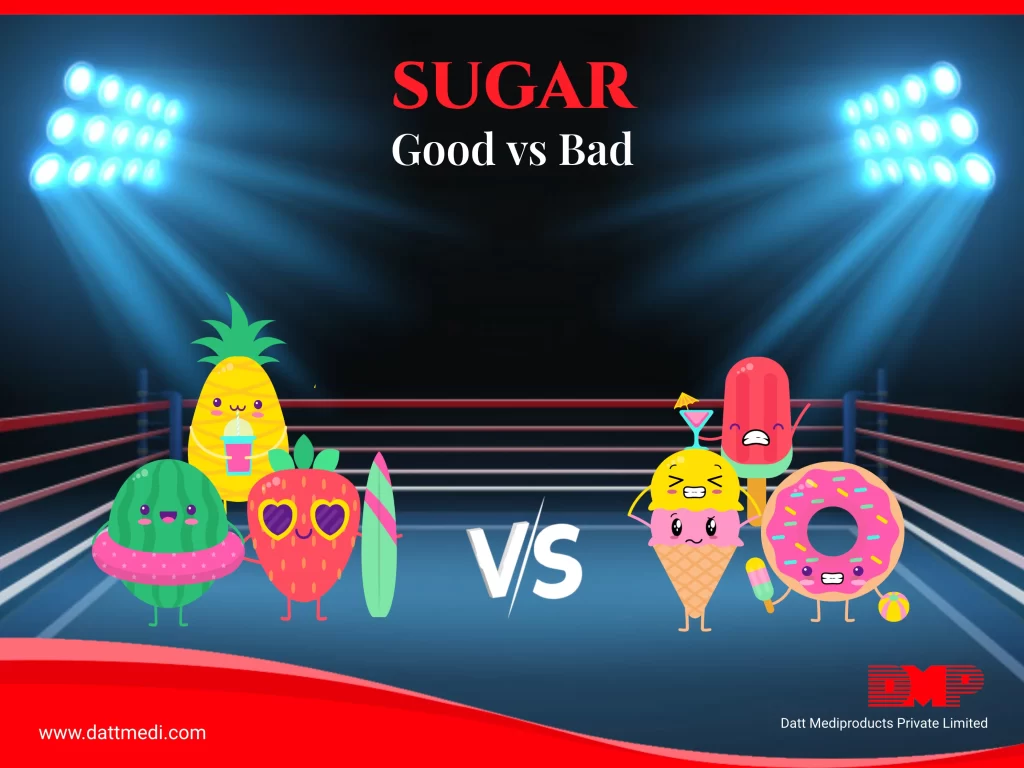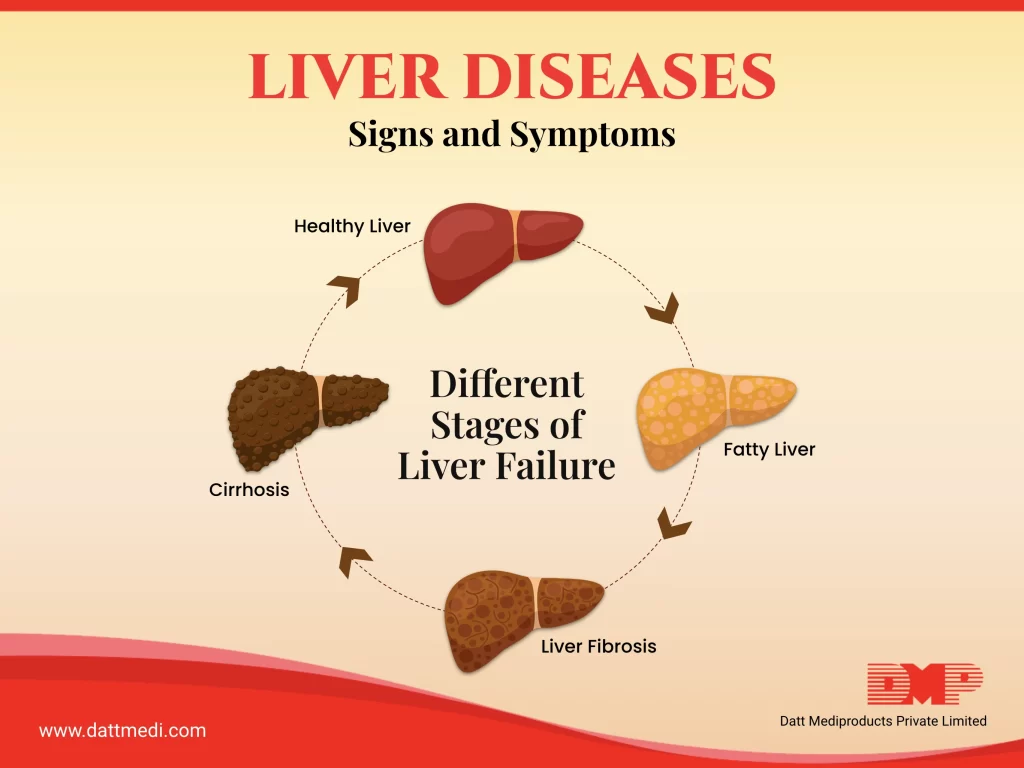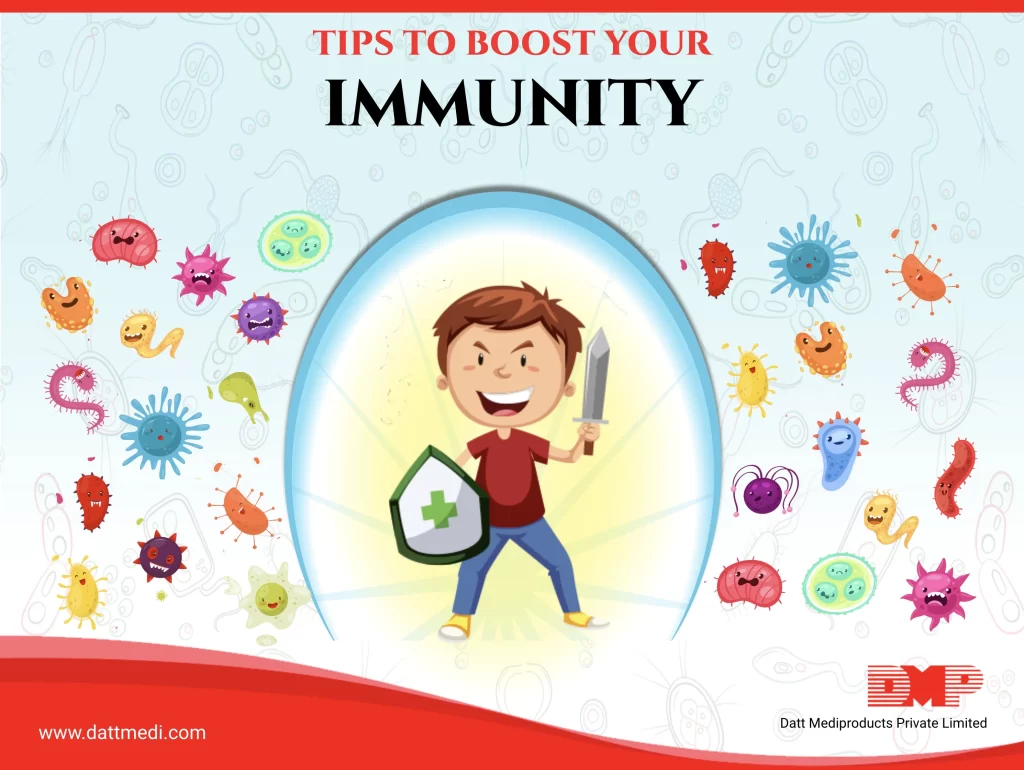
Our food contains carbohydrates, fats, and proteins. The carbohydrates consist of sugars and glucose. Sugars are an important source of energy for the human body. When carbohydrates consumption is low, glucose can also be made from fats and proteins.
Glucose is the most important sugar for the human body. It travels to various cells where it is used as an energy source to perform different bodily functions such as metabolic processes, temperature regulation, muscle contraction, relaxation, etc.
Do You Know?
Glucose is exclusively used by RBCs and the Brain for energy, while other organs can also obtain it from fats and proteins.
TYPES OF SUGAR
The four most common types of sugar include SUCROSE, GLUCOSE & FRUCTOSE, LACTOSE, and MALTOSE. Sucrose is extracted from sugarcane and is referred to as Table Sugar. It’s naturally present in fruits and vegetables. Lactose is found in dairy products and is termed as Milk Sugar. Maltose is also known as Malt Sugar and is present in malted drinks and beer.
The blood sugar ranges
– The normal blood sugar levels for healthy individuals is between 4.0 to 5.4 mmol/L (72 to 99 mg/dL) when fasting and up to 7.8 mmol/L (140 mg/dL) 2 hours after eating.
– For people with diabetes, before meals levels range from 4 to 7 mmol/L for people with type 1 or type 2 diabetes and after-meal levels being under 9 mmol/L for people with type 1 diabetes and under 8.5mmol/L for people with type 2 diabetes
What is the Glycemic Index?
Glycemic Index (GI) is a scale of 0-100, on which foods are ranked according to how much blood sugar levels they raise. Foods with a High GI are digested rapidly and are able to raise blood sugar levels at a faster rate as compared to the foods with a Low GI which are slowly digested and result in a gradual increase in blood sugar levels. These are usually rich in fibers, more vitamins, and minerals. Examples of such low GI foods include water, unsweetened tea, milk, and vegetable juices against sugary counterparts such as sports drinks, sweetened tea/coffee, energy drinks, etc.
NATURAL SUGARS ARE BETTER – Dietary Sugar can be of these main types:
Natural:There are natural sugars found in fruit, honey, whole grains, milk-based products, and vegetables.
Added: Added sugars are found in biscuits or cereals. These are also called free sugars and are referred to as those sugars that are added to a whole range of processed foods and drinks. For example, ready to eat microwave meals, pasta sauces, candy, breakfast cereals, sweetened drinks, and desserts.
Natural Sources are better as they have a less amount of sugar along with other health benefits. Although both affect the body in a similar way, added sugars are easily broken down by the human body causing a rapid rise in blood sugar levels.
DAILY RECOMMENDED MAXIMUM ADDED SUGAR INTAKE
FDA recommends the sugar intake should not be more than 10 percent of the entire daily calorie intake. On the contrary, WHO has reduced this percentage to only 5 percent.
According to WHO, an adult with a normal BMI should consume 6 teaspoons of sugar (25 grams to be exact).
We recommend everyone to limit their sugar intake for healthy living as too much consumption can lead to several issues ranging from mild to severe ones such as concentration problems, mood swings, sudden drop and rise in blood sugar levels, inflammation, weight gain, trouble while focussing and chronic illnesses like heart problems and diabetes. What needs to be watched is the intake of added sugar as no one gains weight by consuming too many natural sugars.
Limit Sugar Consumption, Be Healthy!




